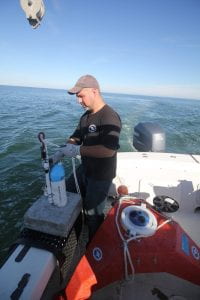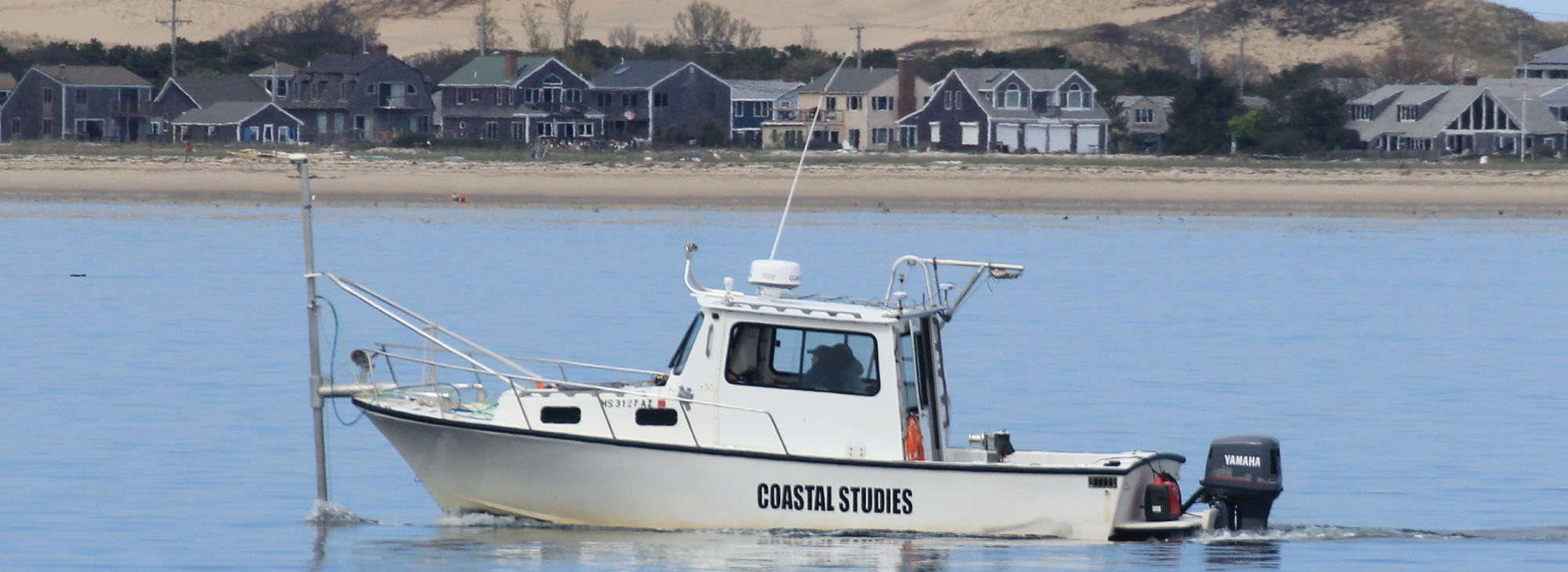
The white shark (Carcharodon carcharias) is the largest predatory fish in the world. As white shark populations in the Atlantic Northwest are rebuilding, predictable seasonal aggregations of white sharks are forming along Cape Cod, Massachusetts. On Cape Cod, white sharks pose a risk to public safety as human and white shark interactions are on the rise. Information on the fine-scale spatiotemporal use of shallow water by white sharks is necessary in order to inform public safety.

In September 2019, we quantified the movements of white sharks using a dense array of receivers arranged to track acoustically tagged white sharks at Head of the Meadow Beach in Cape Cod. Virtual positioning tacked 30 individual white sharks travelling in waters between 1-10 m deep for periods up to 4.5 hours.
 To link these movements to the local abiotic conditions, we collected high-resolution (2-3 cm) sidescan imagery and bathymetry with an Edgetech 6205 phase-measuring sidescan sonar. In addition, data on oceanographic conditions were collected with an Acoustic Doppler Current Profiler (ADCP), pressure loggers, and light meters. White Sharks were present during 40% of the study period and showed distinct affinity to waters near a gray seal (Halichoerus grypus) haul out. Generally, patterns of presence and absence in the shallow water habitats are associated with bathymetry determining individual pathways, changes in oceanographic conditions, and high-energy weather systems. This first of its kind study sheds light on the daily movements of white sharks in shallow waters of Cape Cod.
To link these movements to the local abiotic conditions, we collected high-resolution (2-3 cm) sidescan imagery and bathymetry with an Edgetech 6205 phase-measuring sidescan sonar. In addition, data on oceanographic conditions were collected with an Acoustic Doppler Current Profiler (ADCP), pressure loggers, and light meters. White Sharks were present during 40% of the study period and showed distinct affinity to waters near a gray seal (Halichoerus grypus) haul out. Generally, patterns of presence and absence in the shallow water habitats are associated with bathymetry determining individual pathways, changes in oceanographic conditions, and high-energy weather systems. This first of its kind study sheds light on the daily movements of white sharks in shallow waters of Cape Cod.
